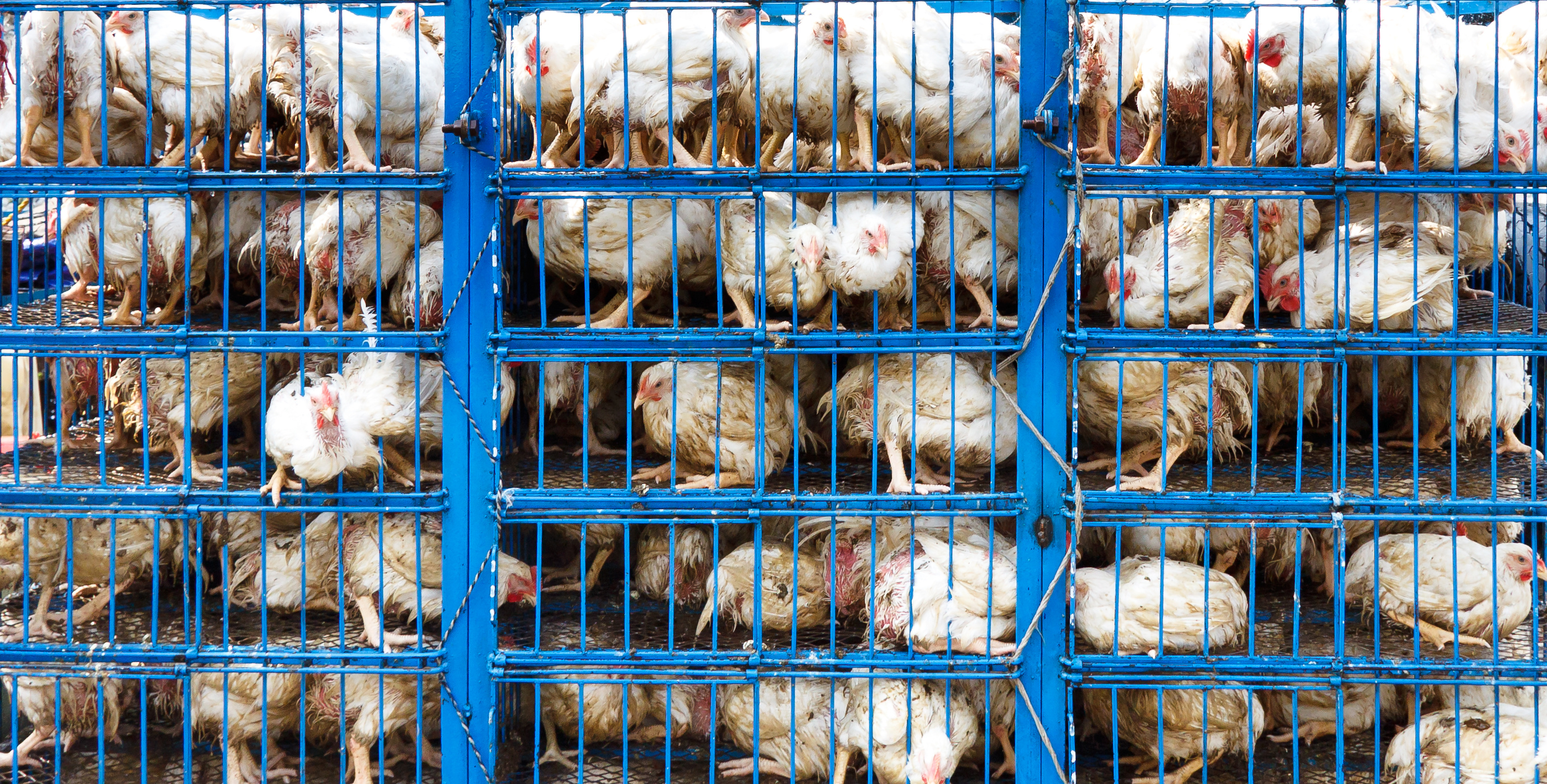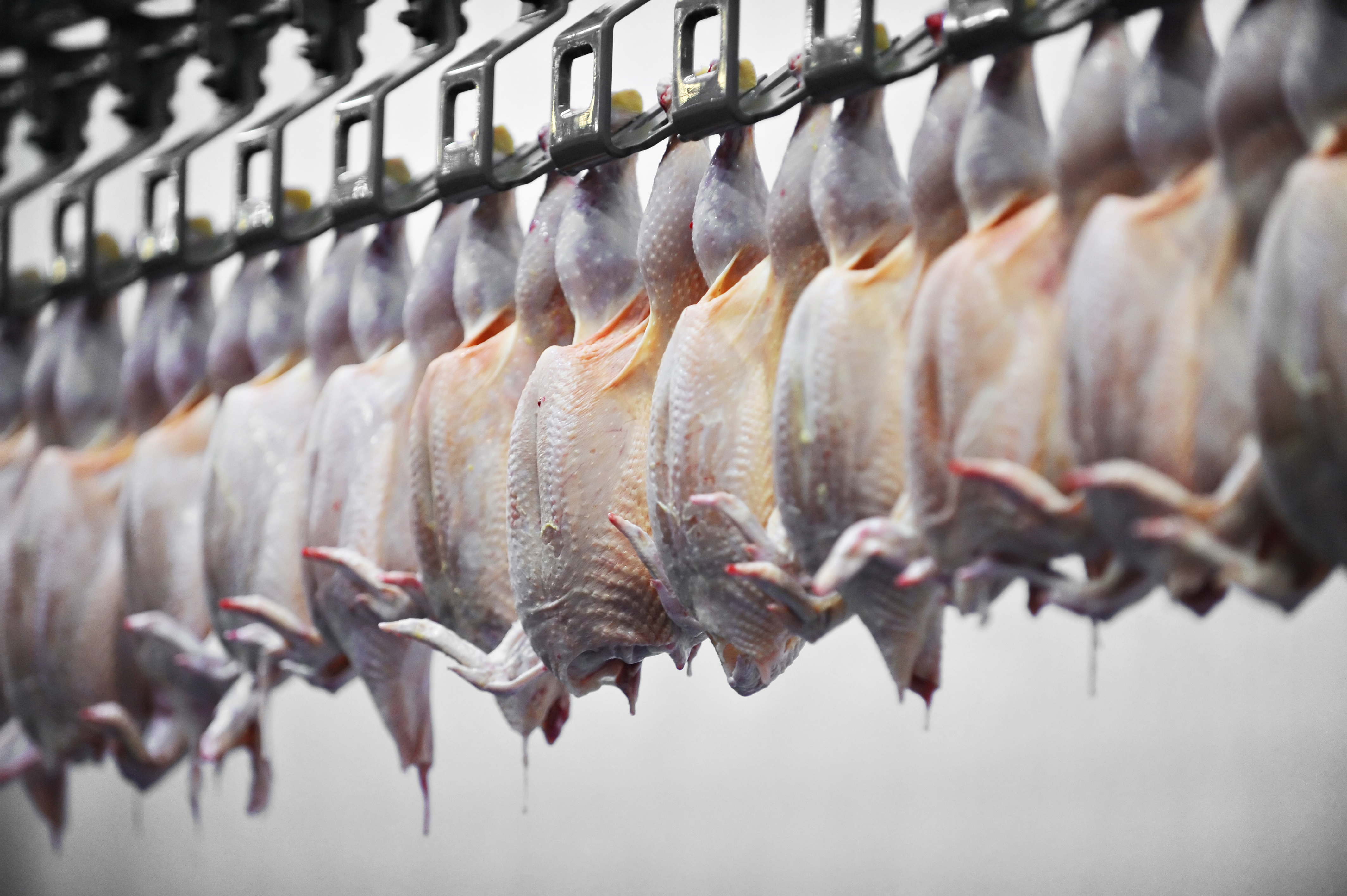



New report alleges that the USDA is turning a blind eye to animal abuse at large poultry plants
A new report from the Animal Welfare Institute (AWI) finds that the USDA's oversight of large slaughterhouses is lacking, leading to widespread mistreatment of birds.The US Department of Agriculture’s existing oversight measures for the treatment of chickens and turkeys at slaughter has led to the widespread mistreatment and suffering of birds at some of the nation’s largest plants, with no real consequences for the producers, according to new research released by the Animal Welfare Institute (AWI).
AWI’s report reviews USDA inspection records from 2017 through 2019 at approximately 300 federally inspected poultry slaughter plants, which slaughter the vast majority of the 9.6 billion birds killed every year for meat.

The USDA has gradually increased the number of humane handling records issued for noncompliance with “good commercial practices” (GCP) at poultry slaughter plants over the past 14 years. However, during the recent three-year period, inspectors took action to stop the abuse of birds in only 14 percent of the documented incidents.
Although poultry slaughter is currently governed by the federal Poultry Products Inspection Act, not one USDA regulation requires that individual birds be handled humanely. As a result, inspectors are prevented from taking any enforcement action for most GCP violations.
Sixteen poultry slaughter plants received 20 or more humane handling records, yet the USDA only issued two “Letters of Concern” to poultry plants (Pilgrim’s Pride in Nacogdoches, TX, and Mar-Jac Poultry in Hattiesburg, MS) for egregious or repeat handling problems, according to documents obtained by AWI through the Freedom of Information Act.
“Absent real accountability, industry leaders have no incentive to alter their behaviour and treat birds more humanely,” said Dena Jones, farm animal programme director for AWI. “It is clear that the USDA is not serious about preventing mistreatment of birds at slaughter; the department’s GCP oversight programme, which it created in 2005 in response to public and congressional outcry over bird mistreatment, is purely voluntary.”
Between 2017 and 2019, the most commonly cited humane handling problems at poultry slaughter plants involved birds drowning in scald tanks and the improper disposal of live birds, including burying them alive under piles of dead birds. Incidents affecting the largest number of birds involved high dead-on-arrival rates due to suffocation and/or prolonged exposure to extreme weather, as well as mechanical problems resulting in injury and death. For example, records showed that multiple birds had their legs ripped off or were disemboweled while conscious due to malfunctioning equipment.

Similarly, video footage obtained by animal advocacy undercover investigations has revealed that, even under the GCP programme, the abuse of birds is still common practice at some slaughter plants, where workers have been observed throwing, kicking, and punching birds on numerous occasions.
In August, AWI and Farm Sanctuary sued the USDA for failing to require humane handling of poultry at slaughter, which can also compromise food safety and meat quality. The lawsuit is pending.
AWI’s recent investigation, which updates its 2017 report on this issue, found that the following poultry slaughter plants received the most GCP violations from 2017 through 2019: Allen Harim Foods in Harbeson, DE (56); Mar-Jac Poultry in Hattiesburg, MS (49); Perdue Foods in Lewiston, NC (37); Moroni Turkey Processing (Pitman Farms) in Moroni, UT (35); and the former Simply Essentials Poultry in Charles City, IA (34).
Among the report’s recommendations
- The USDA should promulgate regulations requiring the humane handling of birds by addressing worker training, transportation and holding conditions, the shackling of birds, the treatment of sick and injured birds, and more.
- The department should proactively post online records related to noncompliance, and refer incidents involving intentional abuse for prosecution under state animal cruelty laws.
- Congress should pass legislation requiring that all birds killed for food be rendered insensible to pain prior to slaughter.
“Industry leaders and the USDA continue to promote a false narrative that there is robust federal enforcement of humane handling of birds at slaughter,” Jones said. “It is incumbent upon the next administration and Congress to put an end to this egregious cruelty.”









